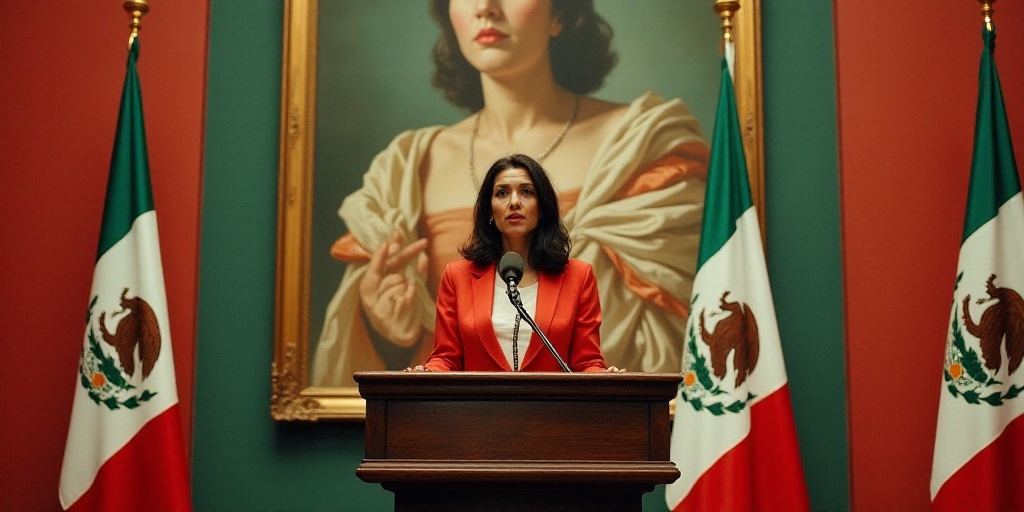Introduction to Claudia Sheinbaum and Her Role
Claudia Sheinbaum is the current President of Mexico City, serving as the head of the local government. As a prominent politician and former federal education minister, she has been instrumental in shaping Mexico’s policies. Her recent focus is on tackling the illegal fuel trade, known as “huachicol,” which has plagued the nation for years.
Sheinbaum’s Integrated Strategy to Combat Illegal Fuel Trade
During her morning press conference on May 19, Claudia Sheinbaum announced an all-encompassing strategy to curb the illegal import and distribution of fuel, as well as the “huachicol” (illegal fuel theft). The strategy revolves around a reinforced traceability model, an interinstitutional monitoring table, and collaboration with US authorities.
Reinforced Traceability Model
Sheinbaum explained that recent administrative regulations, stemming from energy sector reforms, enable comprehensive traceability of fuel—from importation to final distribution. Previously, oversight was fragmented across different institutions responsible for transporting oil or hydrocarbons, gasoline, and diesel.
“Now, with the reforms, traceability is being implemented from importation to final distribution,” Sheinbaum stated. “Before, the oversight was separated among institutions responsible for transporting oil or hydrocarbons, gasoline, or diesel. Now, the traceability covers importation, whether it’s done by Pemex (Mexico’s state-owned oil company) or private entities.”
Interinstitutional Monitoring Table and Collaboration with US Authorities
Sheinbaum highlighted the creation of a weekly working table involving the Secretariat of Energy, Pemex, Profeco (Federal Consumer Protection Agency), the Agency for Security, Energy and Environment (ASEA), and other relevant institutions. This table addresses any irregularities detected promptly.
Furthermore, the Mexican Navy, the National Defense Secretary (Sedena), and the National Customs Agency—with military leadership—are reinforcing control measures to prevent unlawful permits.
Intelligence and Law Enforcement Efforts
On the penal front, Sheinbaum mentioned that intelligence tasks are managed by the Secretariat of Security and Citizen Protection, Sedena, the Navy, and the Federal Attorney General’s Office. They have successfully neutralized illegal tankers, shut down clandestine storage facilities, and tackled direct theft from pipelines.
Cooperation with the US Government
Sheinbaum emphasized the importance of collaboration with the US government in investigating illegal crude oil and refined gasoline trafficking within the United States. This cooperation ensures effective communication and coordination for joint investigations.
Key Questions and Answers
- What is the main issue Claudia Sheinbaum is addressing? Sheinbaum is tackling the illegal import and distribution of fuel, known as “huachicol,” which has been a persistent problem in Mexico.
- What is the core of her strategy? Her strategy revolves around a reinforced traceability model, an interinstitutional monitoring table, and collaboration with US authorities.
- What institutions are involved in the interinstitutional monitoring table? The Secretariat of Energy, Pemex, Profeco, ASEA, and other relevant institutions participate in this table.
- Who is responsible for intelligence and law enforcement efforts? The Secretariat of Security and Citizen Protection, Sedena, the Navy, and the Federal Attorney General’s Office are in charge of these tasks.
- Why is cooperation with the US government crucial? Collaboration ensures effective communication and coordination for joint investigations into illegal crude oil and refined gasoline trafficking within the United States.






